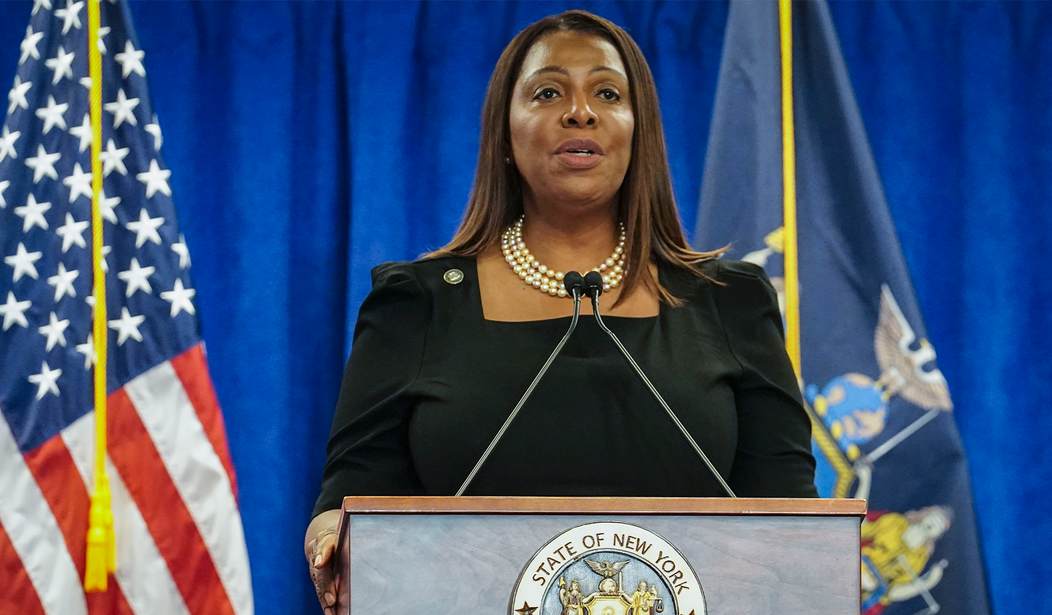A Manhattan judge found Donald Trump guilty in February of fudging his net worth and the value of his real estate holdings to obtain favorable rates from banks and insurers.
New York Attorney General Letitia James wanted to criminalize what was a common practice in the cutthroat New York City real estate market for two reasons. First, Trump spent ten years overstating his wealth. Second, the trial judge did not detect any remorse or contrition from Trump or his sons who were the other defendants. Apparently, the judge didn't like the fact that the Trumps failed to grovel.
Then there was the bonus that James is a Democrat and Trump is a Republican presidential candidate. 'Nuff said.
But the case has now reached the New York Court of Appeals. The five-judge panel seemed skeptical of AG James's application of the particular fraud statute she used to stick it to the former president.
During oral arguments on Thursday, some members of the five-judge appeals court panel suggested that New York Attorney General Tish James had overstepped by using the particular New York fraud statute she used to bring the case against Trump. As soon as Deputy Solicitor General Judith Vale, arguing for James, began her opening remarks, she was cut off by Associate Justice David Friedman, who questioned whether her office had ever before used the statute “to upset a private business transaction that was between equally sophisticated partners.”
Associate Justice Llinet Rosado chimed in once Friedman finished to add, “and little to no impact on the public marketplace.”
The justices’ questions echoed one of Trump’s central lines of defense: He has argued that no one was harmed by the inflated valuations.
“I think you hear underneath all these questions, the question of mission creep,” Associate Justice Peter Moulton said. “Has 6312” — the statute in question — “morphed into something that it was not meant to do?”
“I will stress, your honor, that this does have harm to the public and to the markets,” Vale said in response.
Trump’s lawyer D. John Sauer argued that there were “no victims, no complaints.” Even some of the judges who argued that there was a crime committed can't say who was harmed. The valuations occurred in a private business transaction; therefore, no one was injured in any way as a result of Trump's false valuation.
Vale found herself under siege from the appeals court judges. They demanded to know whether there had ever been a case where the attorney general sued under the state executive law.
Associate Justice David Friedman asked Vale a series of questions, including "where the supposed victim had the ability and legal obligation to discover the allegedly misrepresented matters by conducting its own due diligence; where the supposed wrongdoer advised the supposed victim, through written disclaimers, to conduct its own due diligence and to draw its own conclusions; where the alleged misrepresentation almost entirely concerned inherently subjective valuations of properties and businesses; and where the victim never complained about any fraud.”
It didn’t get a whole lot better for the state from there. A second judge questioned the harm when there was little to no effect on the public marketplace. A third judge said the case sounded like a potential commercial dispute between private actors, suggesting it’s not something the attorney general needed to get involved with. And a fourth judge on the five-judge panel said they were concerned with “mission creep” — that is, whether the state law had been used to do something it wasn’t meant to do.
Just from reading the transcript, I would say the chances are better than 50-50 for the court to either substantially reduce the judgment or toss the entire case.










Join the conversation as a VIP Member